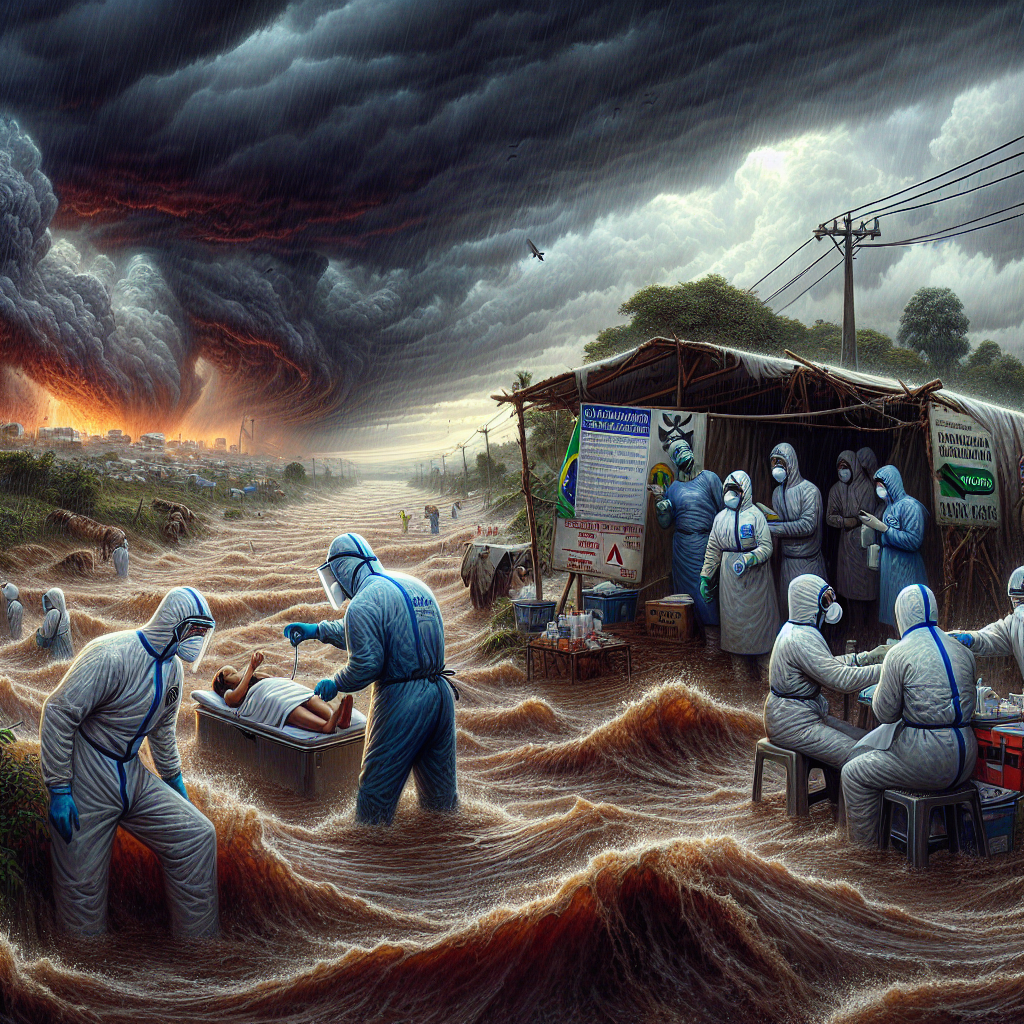UNHCR Expands Response to Devastating Floods in Southern Brazil
An estimated $3.21 million is urgently needed to support UNHCR's response, which includes providing financial assistance to affected individuals and essential relief items.

In the aftermath of heavy rains ravaging Brazil's southern state of Rio Grande do Sul, the UN Refugee Agency (UNHCR) is scaling up its efforts to assist the most vulnerable, including 43,000 refugees and individuals requiring international protection, predominantly Venezuelans, Haitians, and Cubans, along with the communities hosting them.
The floods, deemed the most significant climate-related disaster in Southern Brazil, have claimed 163 lives and displaced 580,000 people, with more than 65,000 still residing in temporary shelters. Over 93% of cities and towns in Rio Grande do Sul have been affected.
An estimated $3.21 million is urgently needed to support UNHCR's response, which includes providing financial assistance to affected individuals and essential relief items.
UNHCR has deployed a specialized team to manage shelters, handle documentation, and prevent gender-based violence in disaster areas. Relief items, including Refugee Housing Units (RHUs), sleeping mats, jerrycans, and hygiene kits, are being dispatched to Rio Grande do Sul from UNHCR warehouses in Boa Vista, Colombia, and Panama.
UNHCR, in partnership with the International Organization for Migration (IOM), is conducting assessments in shelters to identify urgent needs among refugees and migrants, including reissuing lost documentation.
Refugee-led organizations in Rio Grande do Sul are actively involved in collecting and distributing donations and volunteering at emergency shelters. The state hosts over 21,000 Venezuelans relocated from Roraima state since April 2018.
Despite reduced rainfall, Rio Grande do Sul remains vulnerable to weather-related hazards. The forecast predicts continued rain, strong winds, and electrical storms, exacerbating the situation.
UNHCR emphasizes that climate change-induced disasters are occurring more frequently in Brazil, necessitating robust response mechanisms. The agency's newly launched Climate Resilience Fund aims to bolster the resilience of displaced communities and their hosts to extreme weather events caused by climate change.
- READ MORE ON:
- Brazil
- UNHCR
- International Organization for Migration









